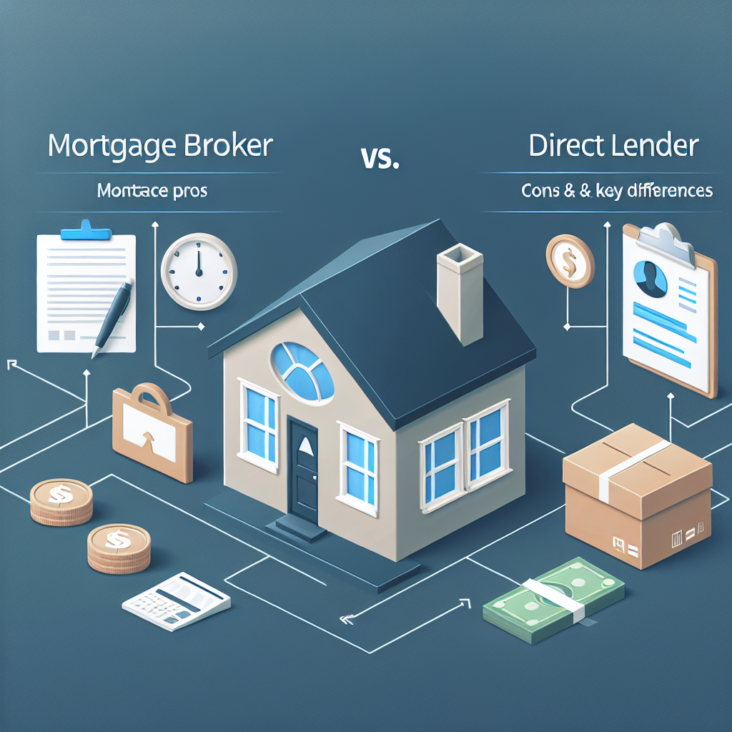Introduction to Mortgage Financing Options
When embarking on the journey to homeownership, one crucial decision is choosing between a mortgage broker and a direct lender. Both offer distinct pathways in securing a mortgage, each with its own set of benefits and drawbacks. Understanding these differences can significantly impact your mortgage experience and financial outcome.
What is a Mortgage Broker?
A mortgage broker acts as an intermediary between you and potential lenders. They work to find the best mortgage product that fits your needs by comparing various offers from different lenders.
Pros of Using a Mortgage Broker
- Variety of Options: Brokers have access to numerous lenders and can offer a wide range of mortgage products.
- Expert Guidance: They provide expert advice tailored to your financial situation.
- Time-Saving: Brokers handle much of the legwork, saving you time and effort.
Cons of Using a Mortgage Broker
- Fees: Brokers may charge fees for their services, which can increase overall costs.
- Lack of Control: You rely on the broker to negotiate terms, which might not always align with your expectations.
What is a Direct Lender?
Direct lenders, such as banks or credit unions, provide mortgage loans directly to consumers. They manage the entire lending process in-house.
Pros of Using a Direct Lender
- Direct Communication: Working directly with the lender can simplify the process and improve communication.
- Potentially Lower Costs: Without a broker’s fee, direct lenders may offer more competitive rates.
- Streamlined Process: Direct lenders often have more straightforward, quicker approval processes.
Cons of Using a Direct Lender
- Limited Options: You are limited to the products offered by that particular lender.
- Higher Qualification Barriers: Direct lenders may have stricter qualification criteria.
Key Differences Between Mortgage Brokers and Direct Lenders
| Feature | Mortgage Broker | Direct Lender |
|---|---|---|
| Options Available | Access to multiple lenders | Limited to in-house products |
| Fees | Broker fees may apply | No broker fees |
| Process Speed | Varies by lender | Typically faster |
| Personalization | Offer personalized advice | Standardized offerings |
Choosing the Right Option for You
Deciding between a mortgage broker and a direct lender depends on your financial situation, desired level of involvement, and personal preferences. Consider the following steps:
- Assess Your Financial Health: Understand your credit score, debt-to-income ratio, and savings.
- Research Options: Compare offers from both brokers and direct lenders.
- Consult Professionals: Seek advice from financial advisors or real estate experts.
- Evaluate Costs: Consider both the upfront fees and the long-term interest rates.
Conclusion
Whether you choose a mortgage broker or a direct lender, the key is to ensure that the mortgage product aligns with your financial goals and provides the best terms for your situation. By understanding the pros and cons of each option, you can make an informed decision that supports your journey to homeownership.




